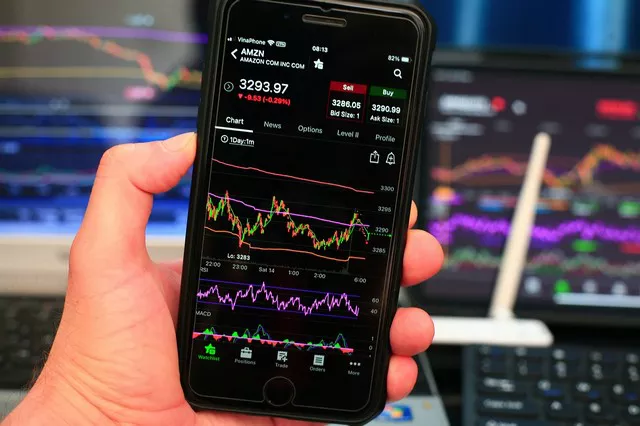Corn futures contracts are a fundamental tool in the agricultural commodities market, allowing producers, consumers, and investors to hedge against price fluctuations and manage risk exposure related to corn prices. As with any financial instrument, understanding the cost of trading corn futures contracts is essential for market participants seeking to engage in futures trading. In this article, we explore the factors that determine the cost of corn futures contracts, how pricing works, and considerations for traders looking to enter the corn futures market.
Understanding Corn Futures Contracts
Corn futures contracts are standardized agreements to buy or sell a specified quantity of corn at a predetermined price on a future date. These contracts are traded on commodity exchanges such as the Chicago Mercantile Exchange (CME) and serve as a benchmark for corn prices worldwide. Each corn futures contract represents a specific quantity of corn, typically measured in bushels, and has standardized delivery terms, expiration dates, and contract specifications.
The cost of trading corn futures contracts is influenced by various factors, including:
1. Contract Size: The size of a corn futures contract refers to the quantity of corn covered by the contract. For example, a standard corn futures contract traded on the CME typically represents 5,000 bushels of corn. The contract size determines the total value of the contract and, consequently, the cost of trading the contract.
2. Contract Price: The price of a corn futures contract is determined by market supply and demand dynamics, as well as factors such as weather conditions, crop reports, global demand for corn, and geopolitical events. Corn futures prices are quoted in cents per bushel, with each cent representing a monetary value equivalent to $50 per contract.
3. Margin Requirements: Margin requirements refer to the initial and maintenance margin amounts that traders must deposit with their brokerage firms to initiate and maintain positions in corn futures contracts. Margin requirements vary depending on factors such as contract size, market volatility, and brokerage policies. Traders must maintain sufficient margin levels to cover potential losses and avoid margin calls.
4. Trading Costs: Trading corn futures contracts incurs various costs and fees, including brokerage commissions, exchange fees, clearing fees, and regulatory fees. These costs can vary depending on the broker’s fee structure, trading volume, and other factors. Traders should consider these costs when evaluating the overall cost of trading corn futures contracts.
Determining the Cost of Corn Futures Contracts
The cost of trading corn futures contracts can be calculated based on the following factors:
1. Contract Size: The first step in determining the cost of trading corn futures contracts is to identify the contract size, which represents the quantity of corn covered by the contract. For example, if a standard corn futures contract represents 5,000 bushels of corn, the total value of the contract can be calculated by multiplying the contract size by the current futures price.
2. Contract Price: The next step is to determine the current price of corn futures contracts. Corn futures prices are quoted in cents per bushel, with each cent representing a monetary value equivalent to $50 per contract. Traders can monitor corn futures prices in real-time using trading platforms, market data providers, or financial news sources.
3. Margin Requirements: Traders must also consider margin requirements when calculating the cost of trading corn futures contracts. Margin requirements vary depending on factors such as contract size, market volatility, and brokerage policies. Traders must deposit initial margin amounts with their brokerage firms to initiate positions in corn futures contracts and maintain sufficient margin levels to cover potential losses.
4. Trading Costs: Finally, traders should factor in trading costs and fees when calculating the total cost of trading corn futures contracts. These costs include brokerage commissions, exchange fees, clearing fees, and regulatory fees. Traders should consider these costs when evaluating the overall cost-effectiveness of trading corn futures contracts and choose brokerage firms that offer competitive fee structures.
Considerations for Trading Corn Futures Contracts
Before trading corn futures contracts, traders should consider the following factors:
1. Market Knowledge: Trading corn futures contracts requires a thorough understanding of the corn market, including supply and demand dynamics, crop fundamentals, weather patterns, and global market trends. Traders should stay informed about relevant market developments and economic indicators that may impact corn prices.
2. Risk Management: Risk management is essential when trading corn futures contracts, as commodity futures markets can be highly volatile and unpredictable. Traders should implement risk management strategies such as stop-loss orders, position sizing, and portfolio diversification to mitigate potential losses and protect capital.
3. Brokerage Selection: Choosing the right brokerage firm is crucial for trading corn futures contracts. Traders should research and compare brokerage firms based on factors such as commission rates, margin requirements, trading platforms, customer service, and reputation. It is essential to select a brokerage firm that meets the trader’s needs and preferences.
4. Trading Plan: Developing a trading plan is essential for success in corn futures trading. Traders should define their trading objectives, risk tolerance, entry and exit criteria, and position sizing rules. A well-defined trading plan can help traders stay disciplined, focused, and consistent in their trading approach.
Conclusion
In conclusion, understanding the cost of trading corn futures contracts is essential for market participants seeking to engage in futures trading. The cost of trading corn futures contracts is influenced by factors such as contract size, contract price, margin requirements, and trading costs. Traders should carefully consider these factors when evaluating the overall cost-effectiveness of trading corn futures contracts and develop a comprehensive trading plan to manage risk and achieve their trading objectives. By staying informed, practicing sound risk management, and selecting the right brokerage firm, traders can navigate the corn futures market with confidence and success.


